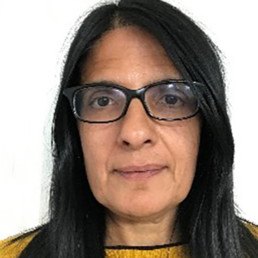
Written by Davinder Dosanjh
Executive Director Leicestershire Secondary SCITT
Thirty-five years in education as a teacher, senior leader, Her Majesty’s Inspector, senior lecturer, teacher educator, I had hoped we would have moved much further forward when we talk about Diversity, Equity and inclusion. I am still not seeing Initial Teacher Training and Education embracing the diverse voices and representing BAME. The decision makers and those on the working groups advising the Department for Education, are the same white faces, from the same organisations.
Policies and initiatives such as the Core Content Framework, Early Careers Framework, have missed opportunities to embed diversity. We are still wedded to the Teachers’ Standards. Teacher Standard 3 and Part 2 of the Teachers’ Standards make no strong statements about embedding diversity, equity and inclusion. The Core Content Framework and Early Career Framework opportunities have merely amplified the Teachers’ Standards into ‘Learn that..’ and ‘Learn how to..’ statements. Examples of systemic racism. These frameworks are a minimum entitlement, so they imply diversity is not part of that prerogative.
Those that train teachers are predominantly, white and middle class. I have been involved with teacher training at a university and a SCITT. Whilst working with both organisations I have asked and sought to be on national bodies which represent these sectors. Never managed to get through the red tape and procedures which maintain the institutional racism. I am just as qualified, have the experience and the track record. Still working out what I am doing wrong or to flip it the other way, what are these national organisations doing which perpetuate these barriers? You have got to be voted on, seconded and then your mates vote you in because you have had the time to network with them. Time to re-examine the criteria for national bodies, working parties, time to have a transformation, give others a voice.
If you have been on a national working group, advisory once, you are to be commended, then pass the baton onto someone else. Insist these groups are diverse and heard at a strategic level.
We need to undertake a more wide-ranging review at the trainee’s journey from pre-application, application, interview, the programme and actual training experience. We need to ask ourselves some critical questions. Then follow the sequence of auditing, action planning, accountability and assessing impact. A starting point are some self-assessment questions below:
Pre-application
Is the marketing diverse and showing a range of positive diverse role-models?
Are we appealing to a diverse range of communities, using a range of networks (Asian radio) not just the traditional career fairs, university, school events?
Application
Who interviews?
Are all interviewers trained beyond safer recruitment, such as Diversity training?
Do we interrogate the data? (those made an offer, rejected, reasons why)
Teacher Educator and Placements
Who are the teacher educators?
Are they diverse?
Can we talent spot and seek out diverse teacher educators?
Are we carefully matching the right teacher educator to the trainee?
How do we deal with any issues of discrimination?
Curriculum
What is the golden thread of Diversity, Equity and Inclusion?
Where is it? What is it?
Who is delivering/facilitating?
Are the role models diverse?
Do we share the mic and encourage allyship?
Evaluation and Quality Assurance
Are the trainee’s voices being heard?
What questions are we asking about Diversity, Equity and Inclusion?
Governance
Is the Steering/Partnership Group diverse?
How can we seek out colleagues from our partner schools to be part of the group?
Is Diversity, Equity and Inclusion a regular agenda item?
I would hope we have moved forward and that any teaching training provider, whether school or university could not ignore a trainee being called a ‘paki’ by pupils like I was. Despite me raising objections, I was told to get on with it, despite this being a regular occurrence. We have policies and procedures to formally report such incidents which were not in place when I undertook my training. More importantly, great communities such as Diverse Educators and BAMEed Network.
I am proud to say the Leicestershire Secondary SCITT has increased the diversity of its cohort from 29% in 2015 to 49% in 2020.

